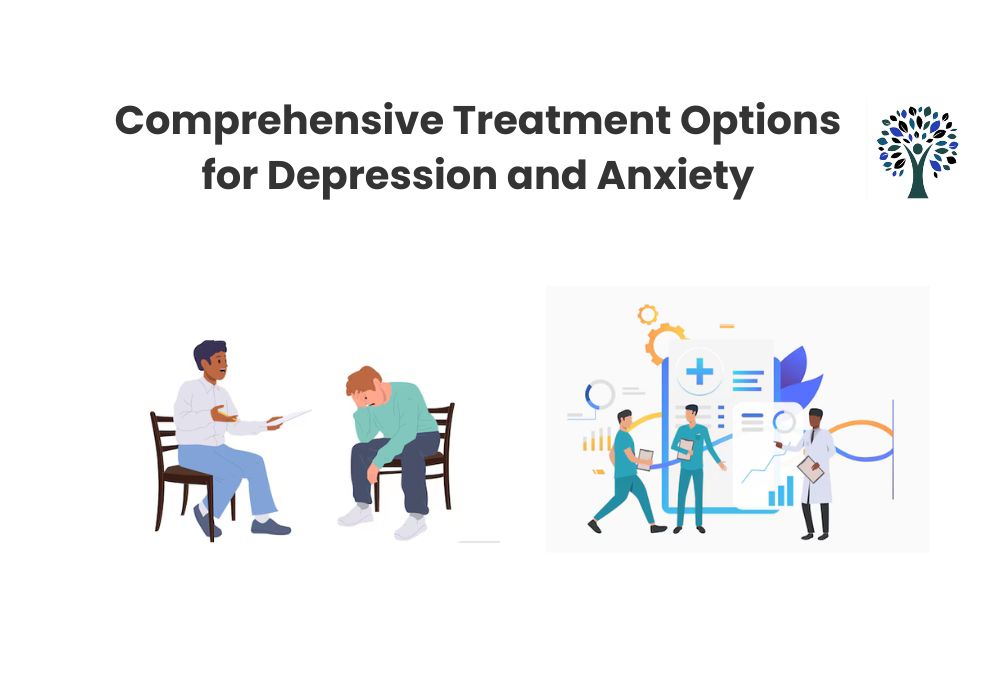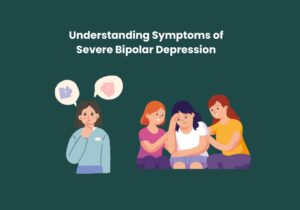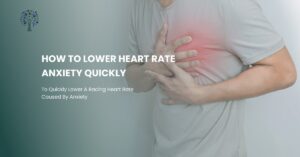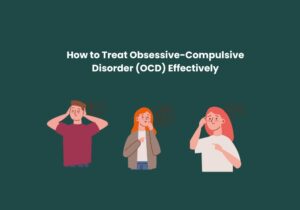Depression and anxiety are two of the most prevalent mental health conditions that impact millions of individuals worldwide. Both disorders often occur together, creating a challenging combination that can affect a person’s emotional, physical, and social well-being. Understanding the comprehensive treatment options available is essential for managing these conditions effectively and leading a fulfilling life.
In this blog post, we will explore the various treatment options for depression and anxiety, providing insight into both traditional and modern approaches to care. Whether you are struggling with one or both conditions, it is important to know that there are effective solutions available to help you regain control of your mental health.
Major Depressive Disorder (MDD), is also known simply as depression. Before Reading this blog post see our previous blog post about Top Symptoms of Major Depressive Disorder You Shouldn’t Ignore.
Treatment Options for Depression and Anxiety
Here, Treatment Options for Depression and Anxiety :
1. Therapy: A Foundation for Healing
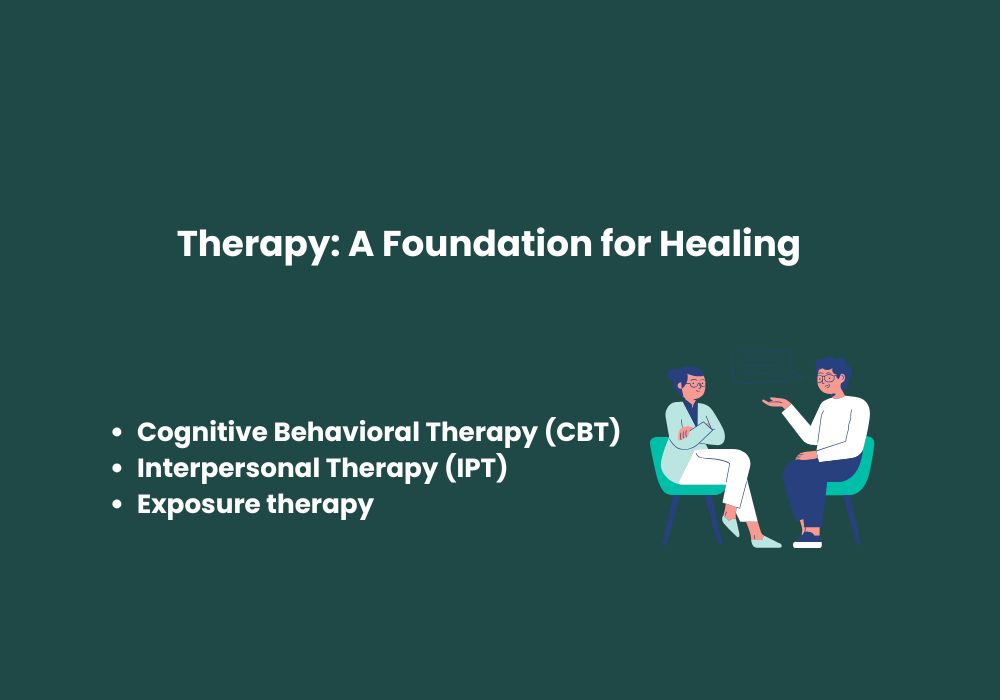
One of the most effective and commonly used treatment options for both depression and anxiety is therapy, also known as psychotherapy or counseling. Therapy helps individuals understand the root causes of their mental health struggles and develop coping mechanisms to deal with them. Below are the most commonly recommended types of therapy for depression and anxiety:
Cognitive Behavioral Therapy (CBT)
Cognitive Behavioral Therapy (CBT) is a structured, goal-oriented therapy that focuses on identifying and challenging negative thought patterns and behaviors. This form of therapy has been extensively studied and shown to be highly effective in treating both depression and anxiety disorders. CBT teaches individuals how to recognize unhealthy thinking patterns and replace them with more balanced, rational thoughts, ultimately improving emotional regulation and reducing symptoms.
Interpersonal Therapy (IPT)
Interpersonal Therapy (IPT) is focused on improving communication skills and interpersonal relationships, as many individuals with depression and anxiety often struggle with social interactions. By working on resolving conflicts and improving social support systems, IPT can alleviate symptoms and help individuals develop more meaningful connections with others.
Exposure Therapy
Particularly useful for individuals with anxiety disorders, exposure therapy involves gradually confronting feared situations or objects in a controlled and supportive environment. Over time, exposure helps reduce the fear response and allows individuals to develop coping strategies to handle anxiety-provoking situations.
2. Medication: Balancing Brain Chemistry
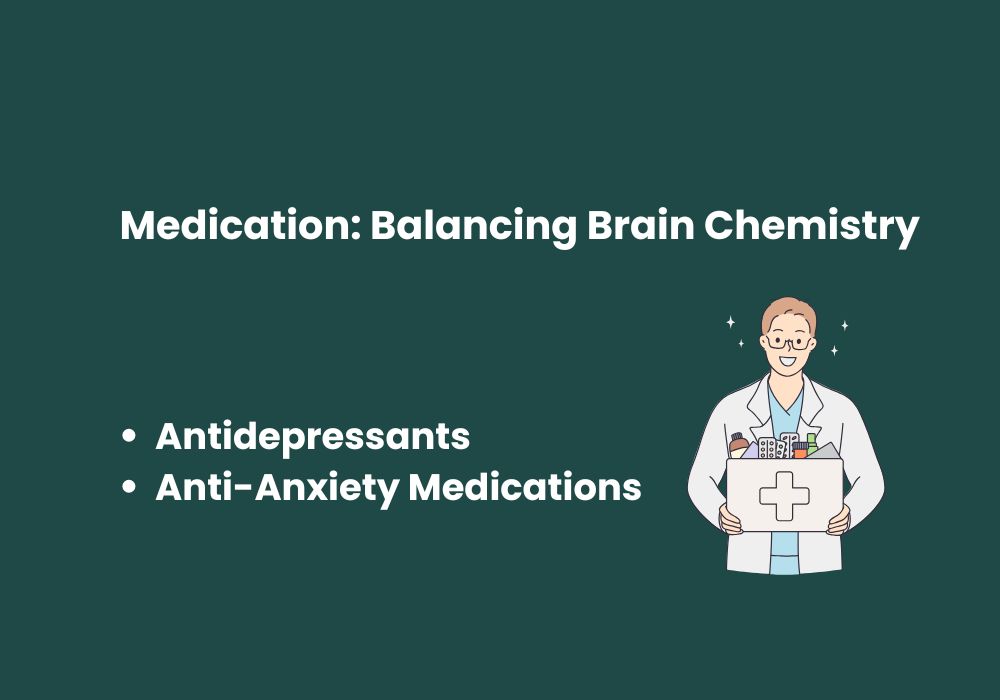
In many cases, therapy alone may not be sufficient to manage depression and anxiety. For individuals who require additional support, medication may be an essential part of their treatment plan. Medications can help rebalance neurotransmitters in the brain, which play a role in mood regulation and anxiety. Below are some common medication options:
Antidepressants
Antidepressants are commonly prescribed for individuals with depression, and some are also used to treat anxiety disorders. These medications work by affecting neurotransmitters, such as serotonin, norepinephrine, and dopamine, which are associated with mood and anxiety regulation. Common types of antidepressants include:
- Selective Serotonin Reuptake Inhibitors (SSRIs): These are commonly prescribed for both depression and anxiety disorders. SSRIs, such as fluoxetine (Prozac) and sertraline (Zoloft), work by increasing serotonin levels in the brain.
- Serotonin-Norepinephrine Reuptake Inhibitors (SNRIs): SNRIs, including venlafaxine (Effexor) and duloxetine (Cymbalta), help regulate both serotonin and norepinephrine levels, making them effective for both depression and anxiety.
- Tricyclic Antidepressants (TCAs): While less commonly used due to side effects, TCAs like amitriptyline can be effective for both conditions, especially in treatment-resistant cases.
Anti-Anxiety Medications
For individuals whose anxiety symptoms are particularly severe, anti-anxiety medications, such as benzodiazepines (e.g., lorazepam, alprazolam), may be prescribed for short-term relief. However, these medications are typically used for brief periods due to their potential for dependence. It is essential to work closely with a healthcare provider to ensure proper use.
3. Lifestyle Modifications: Small Changes, Big Impact
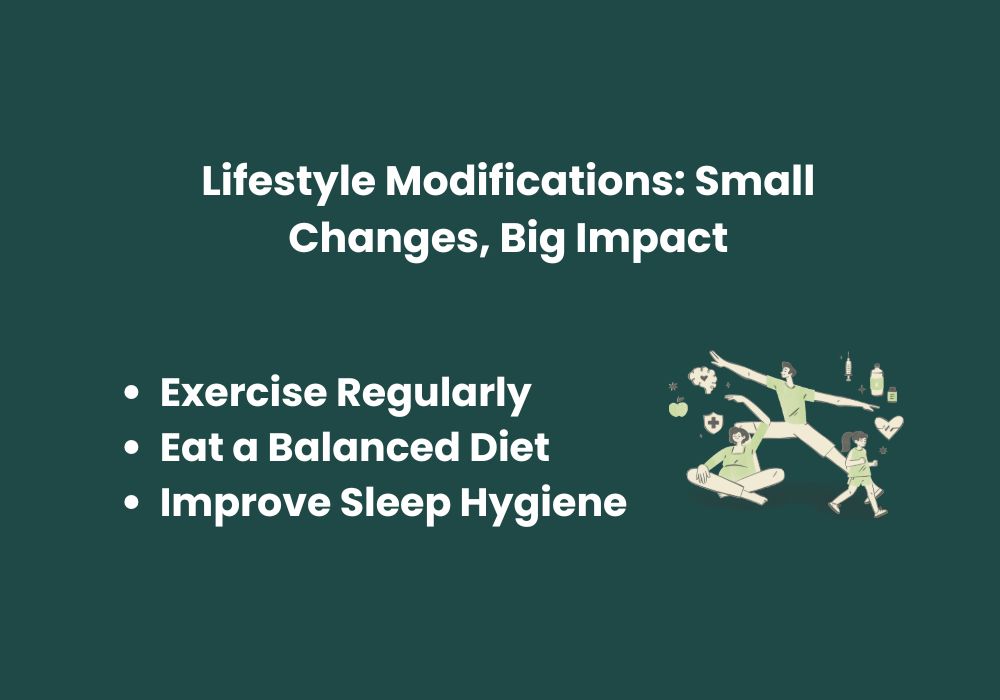
Alongside professional treatment, making certain lifestyle changes can significantly improve your mental health. Incorporating healthy habits into your daily routine can help reduce the severity of symptoms of depression and anxiety. Here are some key lifestyle modifications that may help:
Exercise Regularly
Exercise is one of the most effective natural treatments for both depression and anxiety. Physical activity stimulates the production of endorphins, the body’s natural “feel-good” chemicals. It also helps reduce stress hormones, such as cortisol. A combination of aerobic exercises (e.g., walking, swimming) and strength training has been shown to improve mood and overall mental well-being.
Eat a Balanced Diet
A healthy, well-balanced diet plays a crucial role in mental health. Nutrients such as omega-3 fatty acids, antioxidants, and B vitamins have been shown to support brain health and reduce symptoms of depression and anxiety. Avoiding excessive sugar, caffeine, and processed foods can also improve mood stability.
Improve Sleep Hygiene
Sleep disturbances are common in individuals with depression and anxiety. Poor sleep quality can exacerbate symptoms, while adequate sleep is essential for recovery. Establishing a consistent sleep routine, avoiding caffeine before bedtime, and creating a calming nighttime environment can promote better sleep.
4. Alternative Therapies: Complementary Approaches
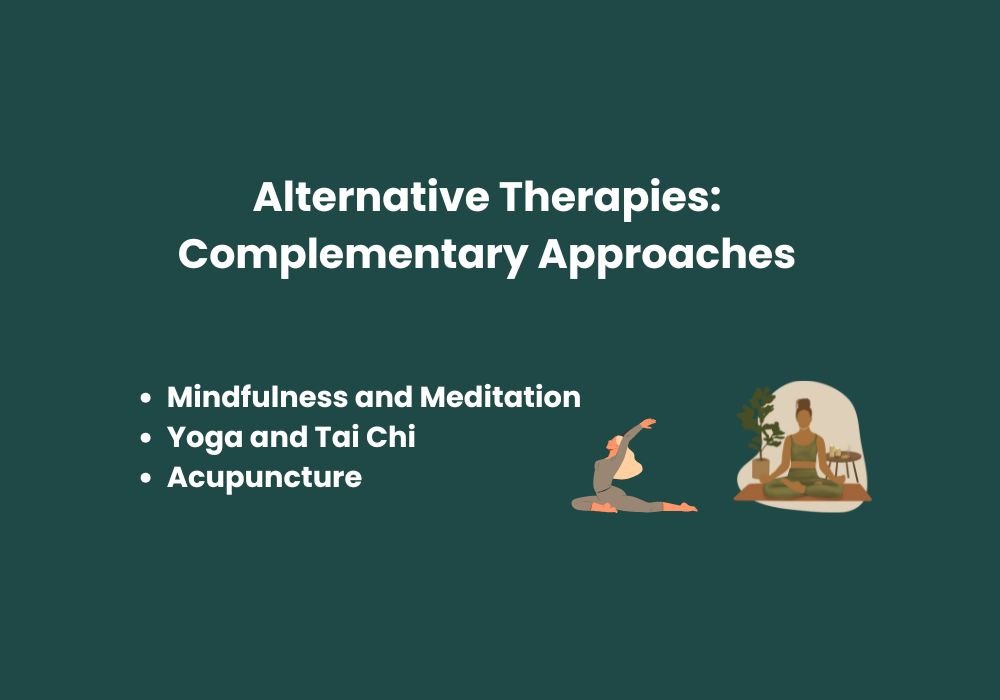
In addition to traditional therapies and medications, many individuals with depression and anxiety find relief through alternative therapies. These can be used in conjunction with other treatments to enhance their effectiveness. Some alternative therapies include:
Mindfulness and Meditation
Mindfulness meditation focuses on the present moment and promotes relaxation. Regular practice has been shown to reduce stress, anxiety, and depression symptoms by improving emotional regulation. Apps like Headspace and Calm provide guided meditations for beginners and experienced practitioners.
Yoga and Tai Chi
Both yoga and Tai Chi combine movement, breathwork, and mindfulness, making them effective tools for managing anxiety and depression. These practices promote relaxation, improve mood, and reduce stress by helping individuals reconnect with their bodies and calm their minds.
Acupuncture
Acupuncture, a traditional Chinese medicine practice, involves inserting fine needles into specific points on the body to balance energy and improve physical and mental well-being. Some studies suggest that acupuncture may help alleviate symptoms of both depression and anxiety.
5. Support Networks: Never Underestimate the Power of Connection
While individual treatment is important, social support is also crucial for mental health. Joining support groups, reaching out to friends and family, or connecting with others who understand your struggles can provide emotional relief and reduce feelings of isolation. Peer support groups or online communities can help individuals feel understood and less alone in their journey to recovery.
Some common questions people thinking
What are the most effective treatments for depression and anxiety?
The most effective treatments include therapy (such as CBT and mindfulness-based therapy), medication (like SSRIs and SNRIs), and lifestyle changes (exercise, diet, and stress management).
Can lifestyle changes alone help with depression and anxiety?
While lifestyle changes like regular exercise, a healthy diet, and proper sleep can improve symptoms, severe cases may require therapy or medication for optimal results.
How do I know if I need professional help for my depression or anxiety?
If symptoms interfere with daily life, relationships, or work, or if you experience persistent sadness, excessive worry, or thoughts of self-harm, seeking professional help is recommended.
Conclusion
If you are struggling with depression and anxiety, it’s important to remember that you are not alone, and effective treatment options are available. Combining therapy, medication, lifestyle changes, and alternative therapies can provide a comprehensive approach to managing both conditions. At Peniel Psychiatry, we offer personalized care tailored to your unique needs to help you overcome these challenges and live a healthier, more fulfilling life.
If you or someone you know is dealing with depression, anxiety, or any other mental health issue, don’t hesitate to reach out to our team for support. You deserve to feel better, and together, we can help you find the right path to healing.

